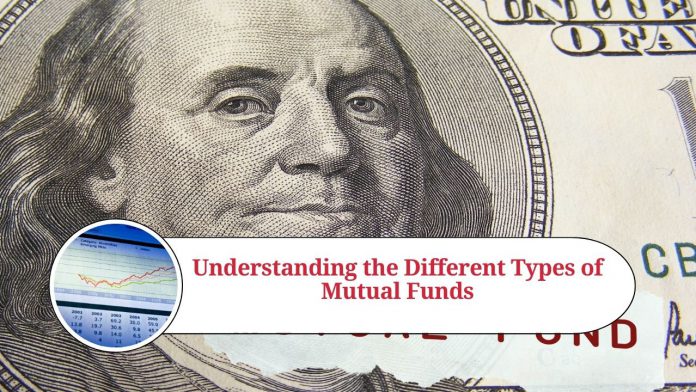Mutual funds are investment vehicles that pool money from a large number of investors to invest in a variety of securities such as stocks, bonds, and commodities. They offer an excellent opportunity for investors to diversify their investment portfolio and benefit from professional management. Mutual funds come in different types, each with unique investment objectives, risks, and returns. In this blog, we will discuss the various types of mutual funds to help you make informed investment decisions.
Equity Funds
Equity funds invest primarily in stocks of companies listed on stock exchanges. They aim to provide capital appreciation by investing in high-growth companies. Equity funds come in different categories such as large-cap, mid-cap, and small-cap funds, based on the market capitalization of the companies they invest in. They also have sector-specific funds that invest in a particular industry such as technology, healthcare, and banking.
Debt Funds
Debt funds invest primarily in fixed-income securities such as bonds, debentures, and government securities. They aim to provide regular income and capital appreciation while preserving the principal amount invested. Debt funds come in different categories such as short-term, medium-term, and long-term funds, based on the maturity of the securities they invest in.
Hybrid Funds
Hybrid funds invest in a combination of equity and debt securities. They aim to provide both capital appreciation and regular income. Hybrid funds come in different categories such as balanced funds, which invest in a mix of equity and debt securities in a predefined ratio, and dynamic asset allocation funds, which adjust their asset allocation based on market conditions.
Index Funds
Index funds invest in a portfolio of stocks that mirror a particular stock market index such as the S&P 500. They aim to replicate the performance of the underlying index and offer a low-cost alternative to actively managed funds.
Exchange-Traded Funds (ETFs)
ETFs are similar to index funds, but they trade like stocks on stock exchanges. They offer investors the flexibility to buy and sell units of the fund at market prices throughout the trading day.
Sector Funds
Sector funds invest in a particular industry or sector such as healthcare, energy, or technology. They aim to provide higher returns by investing in a narrow segment of the market but come with higher risks.
International Funds
International funds invest in securities of companies listed in foreign markets. They aim to provide exposure to global markets and diversify the investor’s portfolio.
Money Market Funds
Money market funds invest in short-term fixed-income securities such as treasury bills and commercial papers. They aim to provide liquidity and safety of capital, making them an ideal investment option for investors with a low-risk appetite.
Conclusion
Mutual funds come in different types, each with unique investment objectives, risks, and returns. By understanding the different types of mutual funds, investors can make informed investment decisions and create a diversified investment portfolio that suits their financial goals and risk appetite. It is advisable to consult a financial advisor before investing in mutual funds to ensure that the investment aligns with your financial objectives.
Read more useful content:
- How to invest in mutual funds
- All about mutual funds-types & importance
- The Power of SIP Investment in Mutual Funds
Frequently Asked Questions (FAQs)
Q: How many types of mutual funds are there?
A: There are several types of mutual funds, including equity funds, debt funds, hybrid funds, index funds, exchange-traded funds (ETFs), sector funds, international funds, and money market funds.
Q: What are equity funds?
A: Equity funds invest primarily in stocks of companies listed on stock exchanges. They aim to provide capital appreciation by investing in high-growth companies.
Q: What are debt funds?
A: Debt funds invest primarily in fixed-income securities such as bonds, debentures, and government securities. They aim to provide regular income and capital appreciation while preserving the principal amount invested.
Q: What are hybrid funds?
A: Hybrid funds invest in a combination of equity and debt securities. They aim to provide both capital appreciation and regular income.
Q: What are index funds?
A: Index funds invest in a portfolio of stocks that mirror a particular stock market index such as the S&P 500. They aim to replicate the performance of the underlying index and offer a low-cost alternative to actively managed funds.
Q: What are exchange-traded funds (ETFs)?
A: ETFs are similar to index funds, but they trade like stocks on stock exchanges. They offer investors the flexibility to buy and sell units of the fund at market prices throughout the trading day.
Q: What are sector funds?
A: Sector funds invest in a particular industry or sector such as healthcare, energy, or technology. They aim to provide higher returns by investing in a narrow segment of the market but come with higher risks.
Q: What are international funds?
A: International funds invest in securities of companies listed in foreign markets. They aim to provide exposure to global markets and diversify the investor’s portfolio.
Q: What are money market funds?
A: Money market funds invest in short-term fixed-income securities such as treasury bills and commercial papers. They aim to provide liquidity and safety of capital, making them an ideal investment option for investors with a low-risk appetite.
Q: Can I invest in more than one type of mutual fund?
A: Yes, it is recommended to diversify your investments by investing in more than one type of mutual fund.
Q: Should I consult a financial advisor before investing in mutual funds?
A: It is advisable to consult a financial advisor before investing in mutual funds to ensure that the investment aligns with your financial objectives and risk appetite.




















